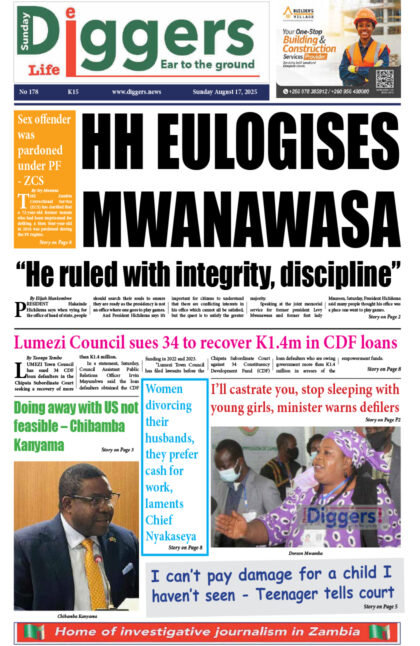The United States Embassy in Lusaka has donated 16 personal computers to NGOs and the Community Markets for Conservation (COMACO) to help prevent wasteful and destructive land uses.
And the Embassy has further provided training to traditional leaders in Eastern Province on the use of satellite-mapping software to enable them improve in monitoring and protection of the forests and wildlife within their chiefdoms.
According to a statement issued by U.S Embassy Public Affairs Officer Sean McIntosh, the data and information collected through the computers’ Geographic Information System (GIS) software will help traditional leaders better plan their actions for preventing wasteful and destructive land uses.
“Data and information collected through the computers’ Geographic Information System (GIS) software will help the traditional leaders better plan their actions for preventing wasteful and destructive land uses, such as charcoal production and unplanned agricultural expansion. The GIS software also provides deforestation alerts and can detect forest fires, examine natural water resource usage, and monitor illegal logging in protected areas,” the statement read.
And USAID Zambia Economic Development Office Director Jeremy Boley said the Embassy was honoured to assist COMACO with its combined effort to support local resource management.
“We’re honoured to assist COMACO with its combined effort to support local resource management, particularly to improve conservation. This is a great opportunity to reuse these computers in a way that aligns with a mutual goal shared between USAID and COMACO—community-led participation in the management of Zambia’s natural resources,” Boley stated.
He stated that the 16 donated computers provide an opportunity to pilot technology aimed at safeguarding Zambia’s natural resources for future generations as well as market opportunities for local communities.
Boley explained that the computers and training would also help traditional leaders to better monitor the impact of their efforts to enact and enforce conservation plans.
Meanwhile, COMACO assistant GIS officer Angel Makungu observed that the support will help leaders have knowledge to visually interpret satellite images of their chiefdoms using Google Earth to monitor deforestation and Global Forest Watch.
“This training is a major step up for community-led conservation in Zambia. The participants now have knowledge to visually interpret satellite images of their chiefdoms using Google Earth to monitor deforestation and Global Forest Watch. These technologies will give them access to a wealth of information that empowers them to better protect their forests with real-time information to find and track fire incidences and the rates of forest loss and gain,” stated Makungu.























